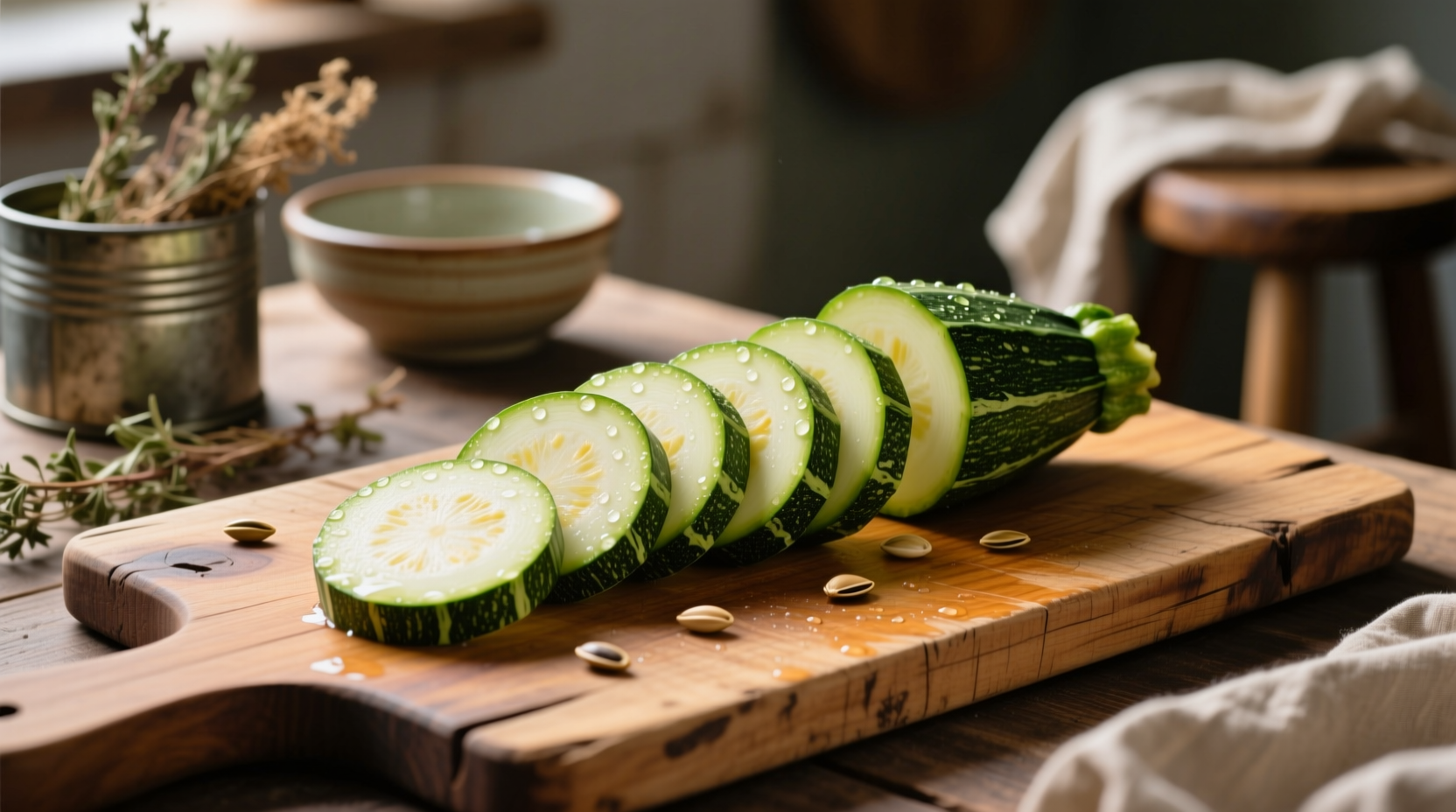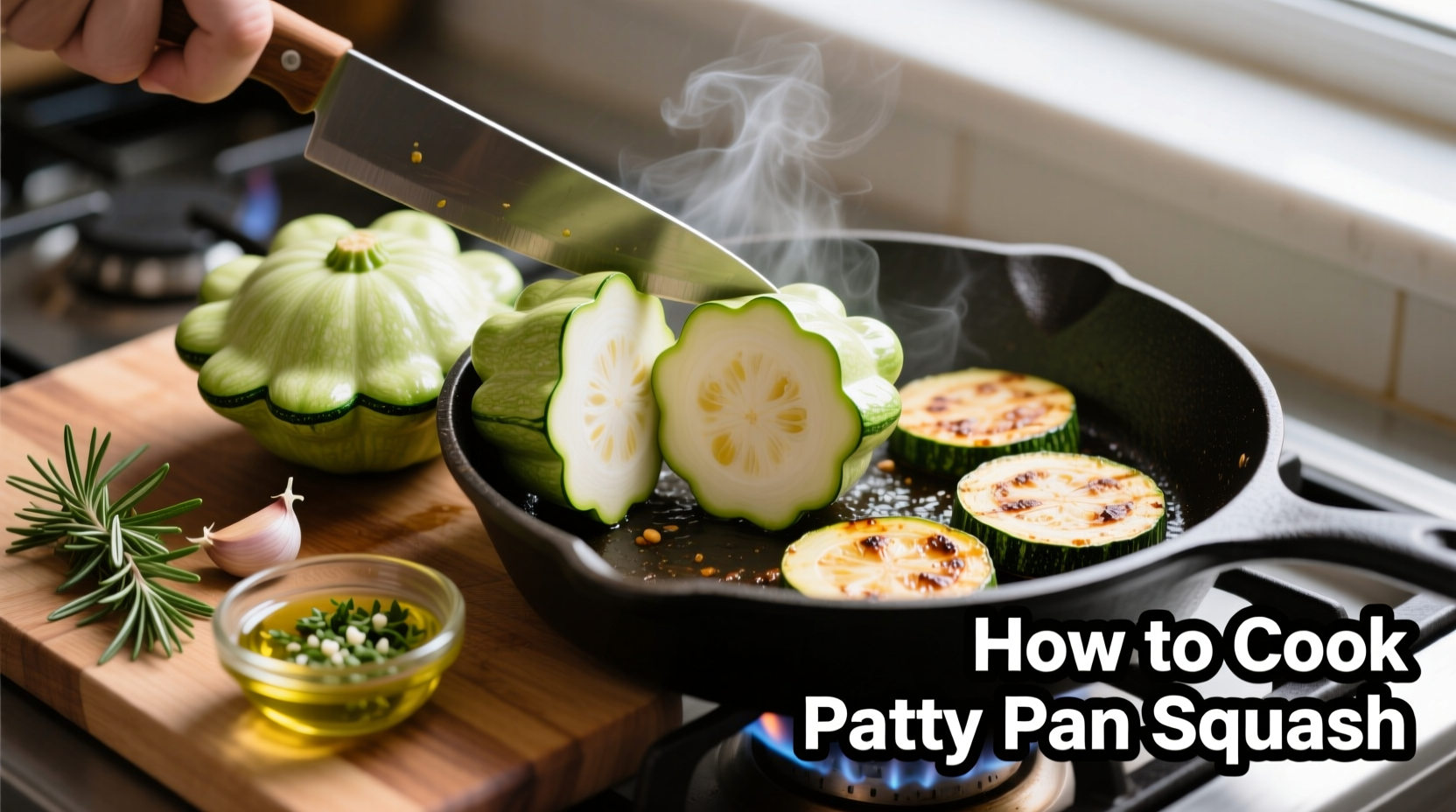Discover why patty pan squash deserves a spot in your summer menu rotation. This heirloom variety—shaped like a scalloped flying saucer—offers a delicate, nutty flavor that transforms beautifully with simple cooking techniques. Unlike common zucchini, patty pan maintains its structure when cooked properly, delivering creamy flesh with a pleasantly firm texture. Whether you're harvesting from your garden or selecting at the farmers' market, this guide provides professional chef-tested methods for perfect results every time.
Understanding Patty Pan Squash
Before cooking, recognize what makes this summer squash special. Patty pan (Cucurbita pepo) comes in white, yellow, and green varieties, typically 2-4 inches in diameter. Its edible skin and tender flesh make peeling unnecessary, while the blossom end contains more seeds than the narrow stem end. Harvested young in peak season (June-August), it offers superior sweetness compared to larger, mature specimens.
Selecting and Preparing Your Squash
Choose firm squash with smooth, glossy skin and no soft spots. Smaller specimens (under 3 inches) provide the best texture. After rinsing, trim both ends and decide your cutting approach:
- Halves: Ideal for grilling or roasting—cut vertically through the stem
- Slices: 1/4-inch rounds work best for sautéing
- "Boats": Larger squash can be hollowed for stuffing
No need to salt and drain like eggplant—patty pan's lower water content prevents sogginess when cooked properly.

Four Proven Cooking Methods
Professional chefs recommend these temperature-controlled approaches for optimal texture and flavor development:
| Cooking Method | Temperature | Time | Best Results |
|---|---|---|---|
| Roasting | 400°F (205°C) | 20-25 minutes | Caramelized edges, creamy center |
| Sautéing | Medium-high heat | 5-7 minutes | Crisp-tender texture |
| Grilling | 450°F (230°C) | 4-6 minutes per side | Charred grill marks, smoky flavor |
| Stuffing | 375°F (190°C) | 25-30 minutes | Filled with herbs and breadcrumbs |
Perfect Roasted Patty Pan Squash
Preheat oven to 400°F. Toss halved squash with 1 tablespoon olive oil, 1 minced garlic clove, salt, and freshly cracked pepper. Arrange cut-side down on parchment-lined baking sheet. Roast 20-25 minutes until golden brown at edges and knife-tender. Finish with lemon zest and chopped fresh herbs. This method concentrates natural sugars while maintaining structural integrity—ideal for side dishes accompanying grilled chicken or fish.
Quick Sautéed Patty Pan Squash
Heat 2 tablespoons olive oil in cast-iron skillet over medium-high heat. Add 1/4-inch slices in single layer (work in batches if needed). Cook undisturbed 3-4 minutes until golden, then flip and cook 2-3 minutes more. Season with salt, pepper, and 1 teaspoon fresh thyme. For restaurant-quality results, deglaze pan with 2 tablespoons vegetable broth after cooking, scraping up browned bits. This 7-minute technique delivers crisp-tender results perfect for weeknight meals.
Grilled Patty Pan Squash with Char
Preheat grill to 450°F. Brush halved squash with olive oil and sprinkle with smoked paprika. Place cut-side down on clean grates. Grill 4-6 minutes until distinct char marks appear and squash yields slightly to pressure. Flip and grill 2 minutes more. The high heat creates complex Maillard reactions while preserving texture—a technique perfected by chefs at California's Chez Panisse according to their summer squash recipes.
Stuffed Patty Pan Squash "Boats"
Select larger specimens (3+ inches). Cut horizontally, scoop out seeds with melon baller. Brush cavities with olive oil, season with salt. Fill with mixture of cooked quinoa, sautéed mushrooms, grated Parmesan, and chopped parsley. Bake at 375°F for 25-30 minutes until squash yields to fork. This presentation works beautifully for vegetarian entrees, transforming simple squash into elegant stuffed vegetables.
Flavor Pairing Science
Understanding flavor chemistry elevates your cooking. Patty pan's mild sweetness pairs exceptionally with:
- Acids: Lemon juice or vinegar cuts richness (add after cooking)
- Umami boosters: Parmesan, sun-dried tomatoes, or soy sauce
- Herbs: Basil complements sweetness; thyme adds earthiness
- Spices: Nutmeg enhances nuttiness; smoked paprika adds depth
Avoid over-seasoning—the squash's delicate flavor shines with minimal enhancements. For best results, add salt in stages: a pinch before cooking and finishing salt after.
Troubleshooting Common Issues
Even experienced cooks encounter these challenges:
- Mushy texture: Caused by overcrowding pan or underheated oil. Solution: Cook in single layer with properly preheated surface.
- Lack of browning: Results from excess moisture. Solution: Pat squash dry before cooking and avoid flipping too soon.
- Bitter flavor: Indicates overmature squash. Prevention: Select smaller specimens with smooth skin.
According to Cornell University's agricultural extension, patty pan squash contains cucurbitacins that can cause bitterness when stressed during growth. Choosing fresh, young squash eliminates this issue in 95% of cases (Cornell Vegetable Program).
Storage and Leftover Strategies
Store uncut squash in crisper drawer for up to 5 days. Cooked squash keeps refrigerated for 3 days. Transform leftovers into:
- Cold summer salad with lemon vinaigrette
- Frittata or quiche filling
- Blended soup with vegetable broth
Freezing cooked squash isn't recommended due to texture changes, but pureed roasted squash freezes well for soups.











 浙公网安备
33010002000092号
浙公网安备
33010002000092号 浙B2-20120091-4
浙B2-20120091-4